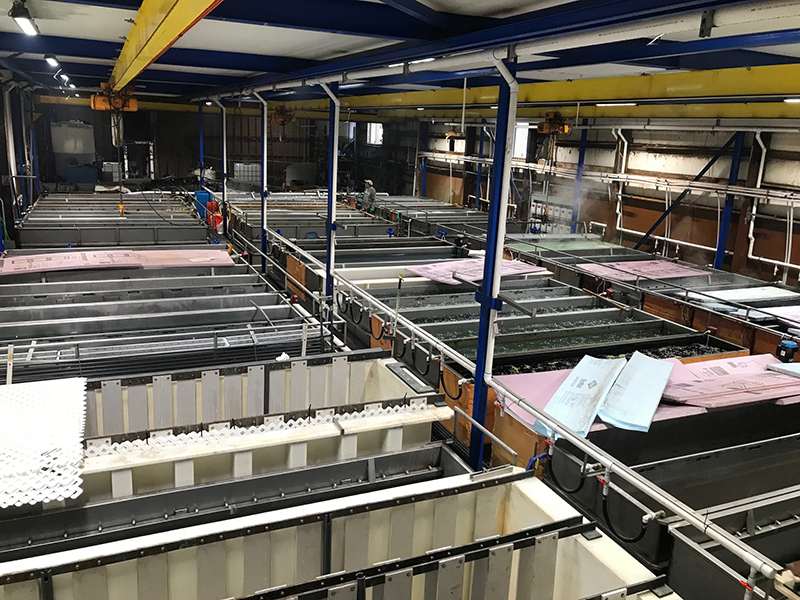
Production Plating Industries (PPI), an aerospace product finishing company in Mukilteo, WA, redesigned the floorplan in their plating area to increase production and enhance their customer base. PPI worked with Ecology to make changes upstream (earlier in the production process) for a more efficient and safer work environment as part of an investment in their industrial process.
The redesign included an installation of two 13-foot tank lines and one 10-ten foot tank line that are on track to be National Aerospace and Defense Contractors Accreditation Program (NADCAP) Certified. As part of this installation, PPI installed a batch ion exchange wastewater reuse system that decreased water consumption, as well as an inline sludge dryer which reduced waste disposal weight by 75%. PPI then automated certain components of their system, further reducing waste generation and improving worker safety.
This was a unique project from the perspective that early on in the design, PPI considered reuse and waste treatment technology to reduce their environmental footprint while increasing their facility's production capacity. In addition to being innovative and safer for the environment, this project made good long-term economic sense for their operation and resulted in:
- Increased volume capabilities and aerospace part treatment capability/efficiency after installing new racking design. The process has decreased labor per unit while doubling production.
- Installation of a semi-automated wastewater treatment unit that reduced costs, made treatment more efficient, and increased reuse of treated water.
- Replacement of hexavalent chromic acid bath chemistry with tri-valent chrome and boric sulfuric safer alternatives. Additionally, PPI developed methods that recovered and reused process bath solutions instead of disposing of it.
This project led to annual savings of approximately $540,000 through waste reduction, reduced water consumption, and automation. PPI invested approximately $1 million into updates over the course of the project, meaning they will achieve a return on their investment in a little under two years.
It's important to note that automation did not lead to a reduced workforce. Because of increased production goals, plating line staff moved into quality assurance, oversight, and other technical roles that resulted from increased production.
To learn more about Ecology’s Toxic Reduction Assistance Program, please contact Toxics Reduction Engineer Rob Reuter at 425-457-3274 or robert.reuter@ecy.wa.gov.

